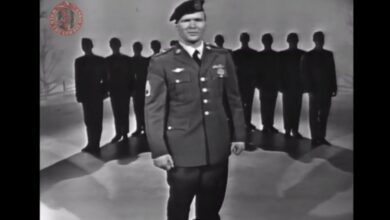Many artists have covered this, but Elvis outshines them all.
Elvis Presley’s interpretation of “Funny How Time Slips Away,” recorded in 1972, serves as a powerful testament to his artistic talent during a pivotal moment in his life and career. Originally written by Willie Nelson, the song conveys a heartfelt exploration of nostalgia and the unending passage of time. Elvis’s emotive vocal style imbues the track with intimacy, allowing it to strike a chord with those who have experienced love and loss. At this juncture in his career, he was grappling with personal difficulties and shifting musical trends, yet this song provided a means for him to emotionally connect with his audience during his reflective phase.
The emotional authenticity of Elvis’s performance is remarkable, reflecting his ability to convey the song’s lyrics with heartfelt sincerity. Each line is laden with yearning, drawing listeners into the story he tells. His dynamic vocal techniques—subtle nuances and intentional pauses—create an ambiance that feels both personal and relatable. The arrangement beautifully supports his voice; gentle guitar strumming and delicate string arrangements serve as a soft backdrop, enhancing the song’s core themes. This artistic synergy between Elvis and his accompanying musicians heightens the track’s expressiveness, ensuring that its emotional gravity remains intact amid the instrumentation.
“Funny How Time Slips Away” emerged during a period of artistic exploration for Elvis in the early 1970s, marking a notable shift in his musical direction. During this time, he demonstrated a newfound appreciation for ballads with country influences, revealing a reflective side distinct from his earlier rock and roll identity. Elvis’s foray into various genres—including gospel, pop, country, and blues—showcases his versatility and commitment to artistic growth, while also reflecting the evolving musical landscape of the era, which embraced broader sounds and emotive storytelling.
The collaborative aspect of the recording sessions further enriches this song. Elvis worked with skilled studio musicians who comprehended the emotional depth required for such a performance. This camaraderie highlighted the vital role of collaboration in music production, where the interaction between the artist and band members can evoke a deeper emotional resonance. The dynamics within the studio facilitated spontaneous moments that ultimately enhanced the authenticity of the recording, achieving a balance between polish and genuineness.
Elvis Aaron Presley was born in Tupelo, Mississippi, in 1935, and ascended to cultural prominence by blending diverse influences that shaped his unique musical style. His relocation to Memphis exposed him to various musical genres, fueling his creativity and laying the groundwork for his groundbreaking career. His early work, which melded rhythm and blues, hillbilly music, and gospel, revolutionized the 1950s music scene. With hits like “Heartbreak Hotel” and “Don’t Be Cruel,” Elvis captured the public’s imagination and earned the moniker “The King of Rock ‘n’ Roll” for his influential role in popularizing the genre.
Despite being a rock and roll icon, Elvis transcended genre boundaries. His venture into country music, especially in poignant ballads like “Funny How Time Slips Away,” illustrates a maturing artist who recognized the power of vulnerability and expression in music. As he navigated his career, particularly during the ’60s and ’70s, Elvis demonstrated his capacity to connect with listeners on a profound emotional level. His performances often explored themes of love, heartache, and yearning, resonating deeply with audiences who saw reflections of their own lives in his journey.
Elvis’s personal life mirrored the complexity of his music. Fame brought both admiration and immense pressure, leading to struggles that many can relate to, including difficulties in relationships and battles with substance abuse. These challenges often echoed in his music, where themes of melancholy and longing reflect the realities of his life. Songs like “Funny How Time Slips Away” not only articulate universal feelings of nostalgia but also capture the essence of a man grappling with the pressures of fame and the quest for personal fulfillment.
Elvis’s legacy is monumental, transcending generations and inspiring countless artists across a wide range of genres. Many contemporary musicians cite him as a source of inspiration, underscoring the significant impact he had on musical expression and style. His ability to blend multiple genres laid the groundwork for future artists to experiment and redefine their own sounds, proving that true artistry does not conform to a single category. The influence of Elvis continues to resonate in modern music, reflecting the enduring power of his work.
“Funny How Time Slips Away” remains an essential part of Elvis’s vast repertoire, embodying the emotional tone that marked much of his later work. Its timelessness speaks to the universality of its themes, reminding us of the bittersweet nature of time. Through his interpretation, Elvis preserved the essence of Nelson’s original composition while infusing it with his own distinctive perspective, resulting in a classic that still captivates audiences today.
In summary, Elvis Presley’s rendition of “Funny How Time Slips Away” exemplifies his evolution as an artist and the emotional richness of his music. It reflects a musician navigating a tumultuous personal landscape yet managing to forge a deep connection with his audience through the art of storytelling. The song illustrates the depth of emotion that can arise when an artist embraces vulnerability, ensuring that Elvis’s music continues to resonate with listeners across generations. His legacy as a trailblazer in the music industry is solidified, not only by his chart-topping hits but by the profound emotional connections he established through his unforgettable performances.





